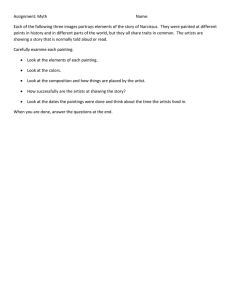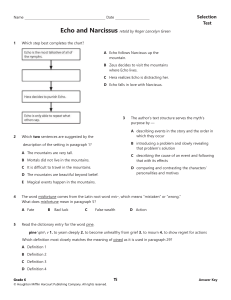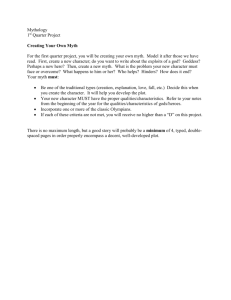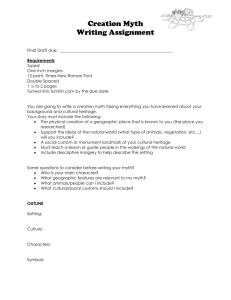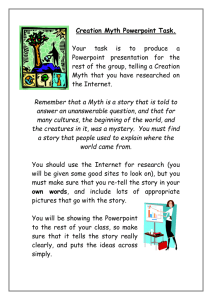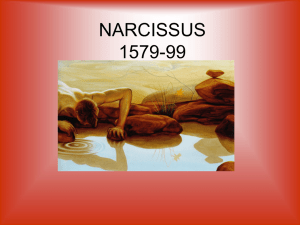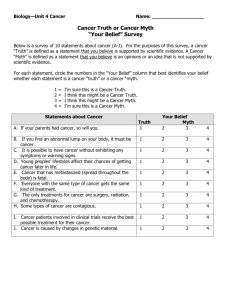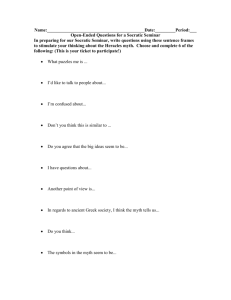Instructions for art and myth paragraphs
advertisement
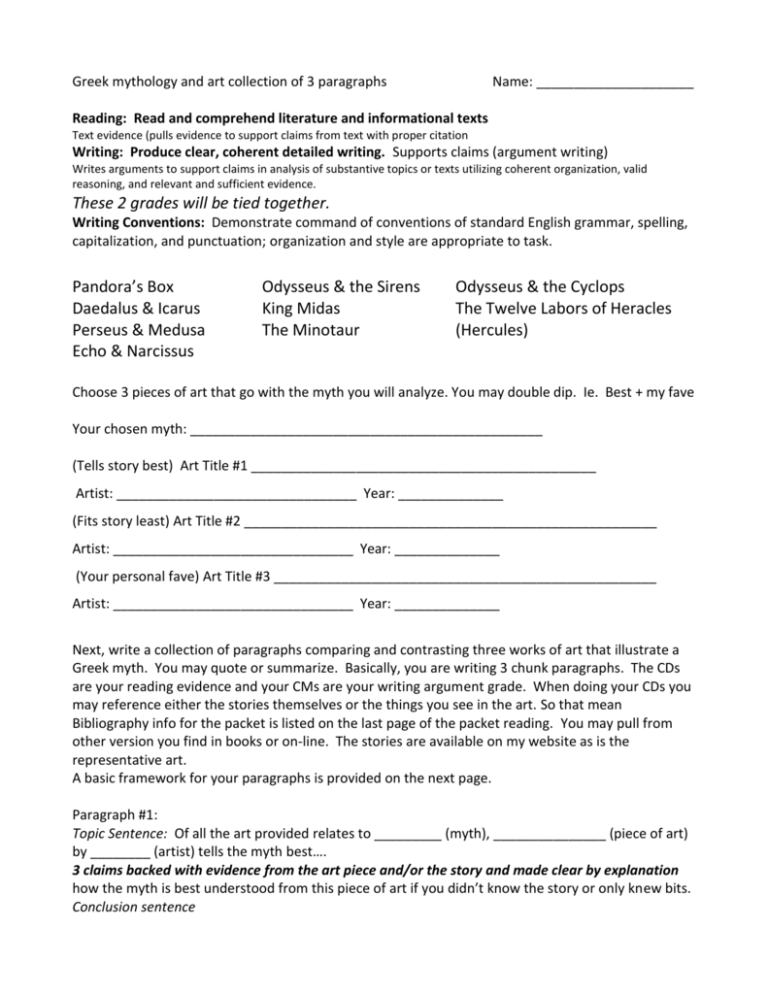
Greek mythology and art collection of 3 paragraphs Name: _____________________ Reading: Read and comprehend literature and informational texts Text evidence (pulls evidence to support claims from text with proper citation Writing: Produce clear, coherent detailed writing. Supports claims (argument writing) Writes arguments to support claims in analysis of substantive topics or texts utilizing coherent organization, valid reasoning, and relevant and sufficient evidence. These 2 grades will be tied together. Writing Conventions: Demonstrate command of conventions of standard English grammar, spelling, capitalization, and punctuation; organization and style are appropriate to task. Pandora’s Box Daedalus & Icarus Perseus & Medusa Echo & Narcissus Odysseus & the Sirens King Midas The Minotaur Odysseus & the Cyclops The Twelve Labors of Heracles (Hercules) Choose 3 pieces of art that go with the myth you will analyze. You may double dip. Ie. Best + my fave Your chosen myth: _______________________________________________ (Tells story best) Art Title #1 ______________________________________________ Artist: ________________________________ Year: ______________ (Fits story least) Art Title #2 _______________________________________________________ Artist: ________________________________ Year: ______________ (Your personal fave) Art Title #3 ___________________________________________________ Artist: ________________________________ Year: ______________ Next, write a collection of paragraphs comparing and contrasting three works of art that illustrate a Greek myth. You may quote or summarize. Basically, you are writing 3 chunk paragraphs. The CDs are your reading evidence and your CMs are your writing argument grade. When doing your CDs you may reference either the stories themselves or the things you see in the art. So that mean Bibliography info for the packet is listed on the last page of the packet reading. You may pull from other version you find in books or on-line. The stories are available on my website as is the representative art. A basic framework for your paragraphs is provided on the next page. Paragraph #1: Topic Sentence: Of all the art provided relates to _________ (myth), _______________ (piece of art) by ________ (artist) tells the myth best…. 3 claims backed with evidence from the art piece and/or the story and made clear by explanation how the myth is best understood from this piece of art if you didn’t know the story or only knew bits. Conclusion sentence Note for thought: This may not be your favorite, but you think it gives the roundest, most complete visual telling of the myth. Use only 3rd person pronouns. Avoid “I think, I believe, or in my opinion”. Paragraph #2: Topic Sentence: Of all the art provided, __________ (art) by ________ (artist) is less convincing in conveying the story of ________. 3 claims backed with evidence from the art piece and/or the story about how the art confuses the myth, undertells the story, or gets it wrong. Conclusion sentence Notes for thought: Address why it is least effective. Does it take the story somewhere the original did not? Pull pieces from the text that you see that are not accurately represented in the painting or sculpture. You may paraphrase missing pieces of the story and argue that the art addresses too small an aspect of the story. Note: only 3rd person pronouns. Avoid phrases “I think, I believe, or in my opinion”. Paragraph #3: I am most drawn to _________________, because… It is different or unexpected or most true, because… Stylistically, I prefer it, because… 3 claims backed with evidence from the art piece and/or the story (This is the only paragraph where you may use the pronouns—I, me, my. Still no 2nd person pronouns –you, you’re, your). Below is a sample of ¶2 Topic Sentence: The painting, Narcissus, by Benczur Gyula hanging in the Hungarian National Gallery is least effective in telling the story of Echo and Narcissus in any complete way. Claim #1: First of all, it is the story of Echo and Narcissus. The painting ignores Echo. If the viewer were ignorant to the story they wouldn’t know that Narcissus is significant due to his poor treatment of Echo. Claim #2:The story is about his love for his own reflection thus he can’t be bothered with anyone. The piece does not show the protagonist staring at himself so it further fails in telling the story. Claim#3: The painting is of a man entranced. That trance doesn’t appear to be caused by his staring at his own beauty, but based on movement, like he’s lost in a dance. Conclusion sentence: Without the title, the painting could really be about a slightly effeminate man caught in “the dance” when the myth tells the story of an enamored nymph who is destroyed by a jealous Goddess and an egotistical man who dies due to his own ridiculousness. You may only use the art provided on the PowerPoint that is available on my website. For your grade, reference the text(s) and make sure you are writing a clear, thorough argument that is convincing… and that your mechanics are gorgeous. Turned in to turnitin.com
